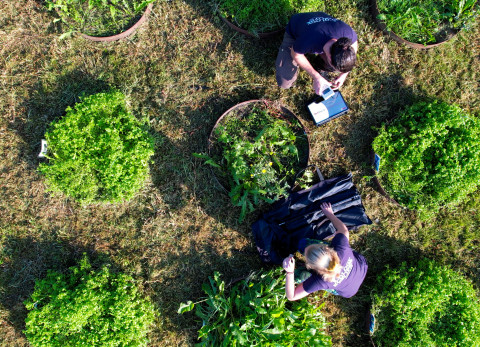Biodiversity research at NIOO
As a result of human activity, global biodiversity is declining at an unprecedented rate and at all levels of life ranging from genes, species, communities and habitats to entire ecosystems.
NIOO studies both ecological and evolutionary processes that determine biodiversity along a wide range of spatial and temporal scales, including effects of the abiotic environment, interactions between species, spatial dispersal processes and rapid evolutionary adaptation.
Biodiversity and human impact
An important focus of NIOO’s research is on how populations and communities change and how such changes affect the functioning of ecosystems.
Much attention is also paid to understanding how biodiversity is affected by human impacts such as:
- Chemical and light pollution
- Eutrophication
- Habitat fragmentation
- Land degradation
- Environmental change associated with climate change
This knowledge forms the basis for the design and evaluation of new management strategies and biodiversity restoration measures that also contribute to safeguarding human health. These strategies and measures include, for instance, habitat restoration, integrated water management, sustainable agriculture, soil conservation and rewilding.
Long-term biodiversity research
A major strength of the biodiversity research at NIOO is long-term monitoring such as done in the CLUE experiment and the Marker Wadden project.
Ecosystem restoration
In 1996, we restored ex-arable land by experimentally influencing plant and soil biodiversity: the ‘CLUE’ experiment. This has paved the way for soil transplantation studies to promote ecosystem restoration worldwide.
Marker Wadden
The construction of the Marker Wadden is a unique nature restoration project. In addition to coordinating the project, we maintain a network of sensors in the waters between these islands that monitor the influence of the Marker Wadden on water quality and movement of freshwater fish.

